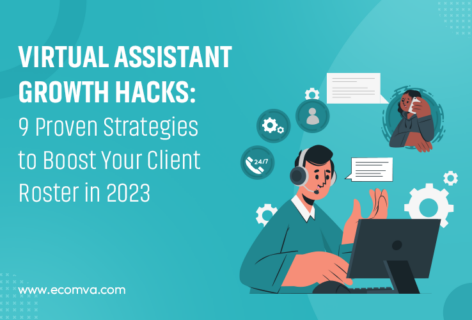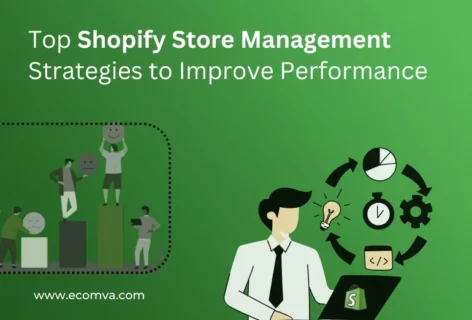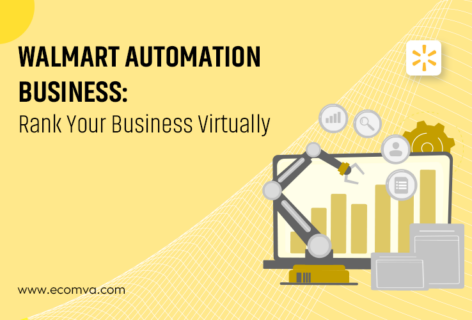What is Shopify Store Management?

Every Shopify store has two sides. The first is the storefront customers see—your design, products, and branding. The second is the unseen engine room: inventory numbers, order processing, SEO tweaks, email campaigns, and dozens of settings in the Shopify dashboard that decide how smoothly that storefront runs.Shopify store management is about keeping that engine room in order. It means checking your product listings for accuracy, reviewing inventory reports, updating the “Search engine listing preview” for better visibility, setting up seasonal discounts in the “Discounts” tab, and making sure every order in the “Unfulfilled” list is processed without delay. It’s work that happens quietly but directly affects how many visitors turn into paying customers.
Our Shopify store management services take over these behind-the-scenes tasks with precision and efficiency. From day-to-day updates to monthly performance checks, we manage the operational details so you can focus on strategy, product sourcing, and growth.
Core Areas of Shopify Store Management
Shopify gives store owners a powerful platform, but keeping it running smoothly requires consistent attention. Key areas include:
-
Product listing and updates
Use Shopify’s “Add product” page to upload titles, SKUs, and variants, add high-resolution images to the media gallery, assign collections, and set up product types and tags so they appear in the right automated collections.
-
Inventory control
Enable “Track quantity” in the inventory section, set “Continue selling when out of stock” for pre-orders if needed, and monitor stock levels using the built-in Inventory Reports. Low-stock alerts can be configured in Shopify or through compatible apps.
-
Price adjustments and discounts
Update the “Compare-at price” field for sale items, schedule automatic price changes using Shopify’s bulk editor, and create site-wide or product-specific discount codes in the “Discounts” section with start/end dates.
-
Order tracking and fulfillment
From the Orders dashboard, filter unfulfilled orders, purchase shipping labels directly in Shopify, add tracking numbers so customers receive updates automatically, and mark orders as fulfilled in bulk.
-
Customer service integration
Respond to messages from the Shopify Inbox app, manage refund requests directly from the Orders page, and process returns by generating prepaid return labels when applicable.
-
Marketing campaign setup
Create and send promotional emails from the Shopify Email app, build time-sensitive discount codes, and link marketing automation tools via the “Marketing” tab to coordinate social media ads with in-store promotions.
-
SEO optimization inside Shopify
Edit the “Search engine listing preview” on each product page to refine meta titles and descriptions, add keyword-rich alt text to every image, and adjust product URLs for clean, search-friendly links.
Each area affects store performance. Even one overlooked detail—like outdated stock information—can result in lost sales or frustrated customers. A Shopify virtual assistant can manage repetitive admin tasks directly from your dashboard. So, you can just relax because everything is taken care of.
Why Consistent Store Management Matters
Without regular management, even a well-designed store can decline. Out-of-stock products stay listed, SEO rankings drop, and customer questions pile up unanswered.
Here’s a number worth noting: Benchmarks show that the average Shopify store converts at around 1.4%, while the top 10% of stores hit approximately 4.7%. This kind of performance gap highlights the real impact of consistent, expert store upkeep.
Consistency also builds customer trust. If buyers see correct prices, fresh product images, and clear order updates, they’re more likely to shop again.
Key Tasks Handled by Professionals
Many store owners start out doing everything themselves, but as sales grow, so do responsibilities. Hiring experts for Shopify store management services, or working with a Shopify store setup expert, means having trained professionals take on repetitive yet critical tasks, allowing you to focus on strategy and growth.
| Solo Store Owner Struggles | Professional Shopify Store Management Services Handle |
|---|---|
| Forgetting to update prices or stock | Automates updates, syncs stock levels across channels |
| Missing customer messages | Responds promptly and processes returns efficiently |
| Promotions launch late | Prepares and schedules marketing campaigns in advance |
| SEO neglected | Refreshes titles, descriptions, tags regularly |
| Hours spent in admin tasks | Takes over back-office operations entirely |
When you hire Shopify manager professionals, you get more than time savings—you get consistency, accuracy, and a store that feels polished every day.
Benefits of Using Shopify Store Management Services
The advantages extend far beyond convenience.
-
Time savings
Instead of spending two hours every morning editing product titles in Shopify’s bulk editor or checking low-stock alerts, you can focus on supplier relationships, customer outreach, or planning new product lines.
-
Better product presentation
Every product page gets consistent high-resolution images, clear bullet-pointed features, and accurate variants, so customers don’t see missing sizes, outdated pricing, or mismatched photos. With the help of a virtual assistant web design specialist, your product pages, banners, and promotional graphics can be updated to keep the storefront fresh and visually appealing all year round.
-
Timely promotions
Seasonal sales, Shopify Email campaigns, and flash discounts are set up, tested, and scheduled in advance, so your “Summer Sale” goes live at midnight sharp without last-minute scrambling.
-
Improved SEO
Product titles, meta descriptions, and image alt text in Shopify’s “Search engine listing preview” are reviewed monthly to match current search trends, helping your pages stay competitive in Google rankings.
-
Reliable back-office support
Order tracking numbers are uploaded promptly, returns are processed in Shopify without delays, and abandoned checkout recovery emails are triggered automatically, reducing lost sales and customer frustration.
Statistic to consider: Shopify powers around 30% of all U.S. e-commerce sites, the largest share for any platform. With competition this intense, detailed management is no longer optional—it’s essential.
Common Mistakes in Shopify Store Management
Even motivated store owners can run into avoidable issues:
- Not updating product descriptions regularly – Search engines and customers prefer current, relevant information.
- Leaving out important product details – Sizes, colors, shipping times, or compatibility notes can influence purchases.
- Inconsistent image quality – Mixing different photo sizes or styles can reduce trust.
- Ignoring abandoned checkouts – Shopify offers built-in recovery emails that often go unused.
- Failing to track seasonal trends – Missing seasonal updates can mean lost sales opportunities.
Addressing these mistakes quickly keeps customers engaged and sales flowing.
Ongoing Optimization for Better Sales
Shopify store management isn’t just maintenance—it’s improvement over time. That means:
- Analyzing which products sell best and promoting them more
- Retiring slow-moving items to reduce clutter
- Testing new discount strategies within Shopify
- Reviewing analytics to find traffic sources worth more investment
- Adjusting SEO settings as keyword trends shift
Our Shopify store management services include regular performance checks, so updates are based on real store data, not guesswork.
When to Hire a Shopify Manager
It’s time to bring in help when:
- Your store has 50+ products and the changes feel endless
- You can’t keep up with orders and customer service
- Marketing campaigns are inconsistent or delayed
- SEO updates get pushed aside month after month
By this point, Shopify store management services can deliver measurable improvements. Outsourcing these tasks to a Shopify store setup expert, or a Shopify virtual assistant ensures every part of your store gets attention without draining your own time.
How Our Shopify Store Management Service Works
Our process is straightforward and built for clarity:
- Consultation – You outline your needs.
- Planning – We identify tasks and create a schedule.
- Execution – Our team handles product uploads, SEO, inventory, customer inquiries, and marketing coordination.
We keep costs transparent—no hidden charges—and you only pay for the services you choose. From product categorization to upsell setup, our team ensures each detail is handled correctly.
By working with us, you benefit from 75% savings on operating costs, 78% time saving, and access to expertise built on serving 350+ e-commerce businesses.
Your Store’s Next Step Forward – Hire Shopify Manager!
Shopify store management is the ongoing process that keeps a store accurate, appealing, and profitable. It’s not a one-time setup—it’s a commitment to keeping operations tight and marketing relevant. For many store owners, the smartest move is to work with experienced professionals who manage these details every day.
Request a consultation today with EcomVA to see how our tailored services can keep your store performing at its best.
FAQs
1. Can Shopify store management services handle third-party app integrations?
Yes, experienced Shopify managers can assist with selecting, installing, and configuring third-party apps—whether for reviews, upsells, email marketing, or analytics. They can also troubleshoot app conflicts and ensure they work smoothly with your existing setup.
2. What kind of access do I need to give a Shopify manager, and is it secure?
You can assign staff permissions within Shopify so managers only access specific areas like Products, Orders, or Discounts. This setup ensures your data remains secure and sensitive business info stays protected.
3. Do I need to pause my store or operations while onboarding a store manager?
No, store management services are designed to be non-disruptive. Most onboarding and setup processes happen in the background while your store remains live and active for customers.
4. Can store managers help with marketplaces like Amazon or Etsy if I sell there too?
Many Shopify managers offer multichannel support and can help sync product listings, inventory, and orders across platforms using apps like Shopify Marketplace Connect or CedCommerce integrations.
5. Is Shopify store management a one-time service or an ongoing engagement?
While some businesses hire for one-time cleanups or seasonal support, consistent results typically come from ongoing monthly management—where updates, audits, and campaigns are handled continuously based on performance data.







